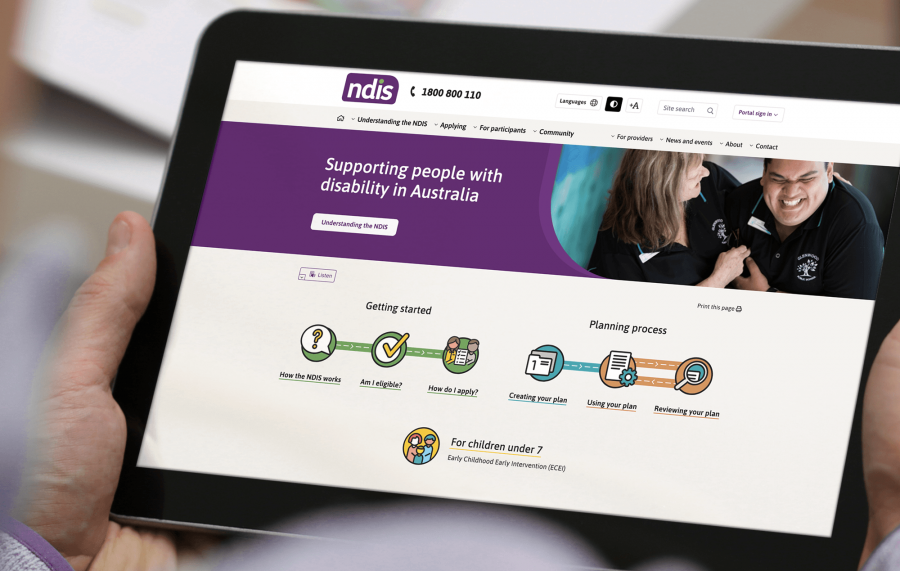G’day! If you’ve landed here, you’re probably looking to get your head around the NDIS Core Supports Budget. Maybe you’re a participant, a family member, or a carer trying to make sense of it all. No worries – we’re here to help! Let’s dive into this comprehensive guide and make sense of everything.
What is the NDIS Core Supports Budget?
First things first, let’s break down what the NDIS Core Supports Budget is all about. The NDIS (National Disability Insurance Scheme) is a fantastic program that helps Australians with disabilities live more independent and fulfilling lives. The Core Supports Budget is a key part of this scheme, designed to fund everyday activities and support services.
In addition to the Core Supports Budget, the NDIS also offers a capacity building supports budget. This budget provides flexibility to decide how the funding is spent within each category to support the pursuit of goals and independence.
The Core Supports Budget is divided into four categories or main categories:
Assistance with Daily Life
Transport
Consumables
Assistance with Social and Community Participation
Each category covers different types of support to help you live your best life.
Assistance with Daily Life

This category is all about helping you with the tasks of everyday daily living. It’s like having a bit of extra help to make your day run smoothly.
Personal Care and Household Tasks
Need support worker or a hand with personal care tasks? This part of the budget can cover supports like:
Showering
Dressing
Eating
Moving around your home
Who doesn’t need a bit of help around the house from time to time? The budget can also cover domestic duties such as:
Cleaning
Laundry
Yard maintenance
Supported Independent Living (SIL)
For those who need more intensive support, SIL can be a lifesaver. It provides 24/7 assistance for participants living in shared accommodation. This can include help with cooking, personal care, and managing household tasks.
Transport
Getting around is a big part of staying active and involved in your community. The NDIS understands this and provides transport funding to help cover travel costs.
Travel Costs and Specialised Transport
This part of the budget can help with the costs of transport to:
Community activities
Social events
Work or education
Daily errands
If using public transport isn’t an option due to your disability, there are options for specialised transport. This can include taxis or other services tailored to your needs.
Consumables
We all need a few essential items to keep us going. This category covers everyday products that you might need.
Everyday Items and Low-Cost Assistive Technology
Consumables can include:
Continence products
Nutrition supplements
Low-cost assistive technology like shower chairs or specialised cutlery
Assistance with Social and Community Participation
Life is about more than just getting by – it’s about thriving and enjoying the community around you. This category helps you get out there and get involved.
Community Activities and Skill Development
Support for engaging in social, recreational, and community activities can include:
Joining a local club or group
Attending community events
Participating in sports or hobby groups
This can be about self care activities, building your social skills, fostering friendships, and improving your engagement with the community. Activities might include:
Workshops or classes
Social skills training
Group activities
How to Maximise Your NDIS Core Supports Budget
Alright, now that you know what the core supports budget covers, let’s talk about how to make the most of it. A support coordinator can help you understand how to use your NDIS plan flexibility to achieve the best outcome. Managing your core support budget effectively can really make a difference.
Prioritising Needs and Setting Goals
Take some time to think about what’s most important to you. What do you need help with on a daily basis? What are your goals? Prioritising these three daily life tasks can help you allocate your budget more effectively.
Regularly Reviewing and Adjusting the Budget
Life changes, and so do your needs. Make it a habit to regularly review your budget and make adjustments as necessary. This ensures your core funding still continues to meet your needs.
Working with Support Coordinators and Plan Managers
Don’t be afraid to seek help from the pros. A support coordinator can help you understand how to use your NDIS plan flexibility to achieve the best outcome. Support coordinators and plan managers can offer valuable advice and assistance in managing your budget. They can help you understand the ins and outs of the NDIS and make the most of your funding.
Real-Life Examples
Let’s look at a few real-life examples of how participants are successfully using their core supports budget.
Emma’s Story: Emma uses her budget to cover personal care tasks like showering and dressing. She also allocates funds for a cleaner to help with household tasks. This allows her to focus on her job and enjoy her free time without worrying about these tasks.
Jake’s Journey: Jake loves sports but struggles with transport. He uses his NDIS transport funding to cover taxi fares to and from his local sports club. This keeps him active and involved in the community.
Sophie’s Success: Sophie has a keen interest in art. She uses her assistance with social and community participation funds to join a local art class. This not only hones her skills but also helps her build new friendships.
Common Challenges and How to Overcome Them

Navigating the NDIS can sometimes be a bit tricky. Here are some common challenges participants face and tips on how to overcome them.
Identifying Common Issues
Understanding the Budget Categories: It can be confusing to figure out what falls under each category.
Managing Funds: Keeping track of how much you’ve spent and what’s left can be daunting.
Accessing Services: Finding the right service providers and supports can take time and effort.
Strategies for Addressing These Challenges
Seek Assistance from NDIS Representatives: They can provide clarity on budget categories and help you understand your funding.
Use Budgeting Tools: There are various tools and apps available to help you manage your funds more effectively.
Leverage Community Resources and Support Groups: Connecting with others in the NDIS community can provide support and share valuable experiences and advice.
Conclusion
And there you have it – a comprehensive guide to understanding the NDIS Core Supports Budget. Remember, this core budget really is here to help you live your life to the fullest, providing the support you need to achieve your goals and maintain your independence.
Don’t hesitate to reach out for help if you need it. Whether it’s working with support coordinators or connecting with community resources, there’s plenty of support available to help you navigate the NDIS.
So, take charge of your NDIS Core Supports Budget and make it work for you. If you have any questions or need personalised support, feel free to contact Re.Connect Support Services. We’re here to help you every step of the way.
Additional Resources
Contact Information for Re.Connect Support Services
By understanding and effectively managing your NDIS Core Supports Budget, you can unlock a world of opportunities and support to help you live your best life. Happy support budget-ing!
In this guide, we’ve covered a lot of ground, from breaking down the core supports budget to offering practical tips on managing your NDIS core supports funding. We hope this has given you a clearer picture of how the NDIS Core Supports Budget can support you in your everyday life. Remember, this is about your journey and making the most of the resources available to you.
Getting the Most Out of Your NDIS Plan
Self-Managed vs Plan Managed

Deciding whether to self-manage your NDIS funds or use a plan manager is an important choice. Self-managing gives you greater control and flexibility, while using a plan manager can reduce the administrative burden. Consider your personal preferences and needs when making this decision.
Capacity Building and Beyond
While the core supports budget is crucial, don’t forget about other categories like capacity building supports and capital supports. Capacity building funding is designed to help you build your skills and independence over time, covering areas like support coordination, employment support, and further education.
The capacity building supports budget provides flexibility to decide how the funding is spent within each category to support the pursuit of goals and independence.
Capital Supports
The capital supports budget covers more significant, one-off purchases such as home modifications, vehicle modifications, and assistive technology. It’s essential to understand how this other support budgets fits into your overall NDIS plan.
Stated Supports and Other Categories
Some supports are specifically stated in your plan and must be used as outlined. Make sure you’re aware of these to avoid any issues with your funding.
Connecting with Your Community
Social and Recreational Activities

Engaging in various social and community activities or recreational activities can significantly enhance your quality of life. Whether it’s joining a local sports club, participating in art classes, or attending a community event, these activities are vital for your social and emotional well-being.
Civic Participation
Involvement in civic activities, such as volunteering or participating in community decision-making processes, can also be a meaningful way to engage with your community and build a sense of purpose.
Support for Families and Carers
Early Childhood Partner
For families with young children, the early childhood partner program provides specialised support to help children develop and thrive in their early years.
Residential Aged Care and Medium Term Accommodation
For participants transitioning into a residential aged care facility, or requiring medium-term accommodation, the NDIS provides funding to ensure these living arrangements meet their needs.
Final Tips for Success
Plan Reviews
Regular plan reviews are essential to ensure your NDIS plan continues to meet your needs. Be proactive in preparing for these reviews and clearly communicate any changes in your circumstances or needs.
Working with Your Local Area Coordinator (LAC)
Your local area coordinator (LAC) is a valuable resource for navigating the NDIS. They can help you connect with services, access community, plan your supports, and make the most of your NDIS funding.
Maintaining Health and Well-Being
Don’t forget to prioritise your health and well-being. This might include accessing supports for diet advice, gym memberships, or other health-related services.
By staying informed and proactive, you can make the most of your NDIS Core Supports Budget and other funding and support categories. Remember, this journey is about achieving your goals and living a fulfilling life. Reach out to Re.Connect Support Services for any support or guidance you need along the way. Together, we can make your NDIS plan work for you!


